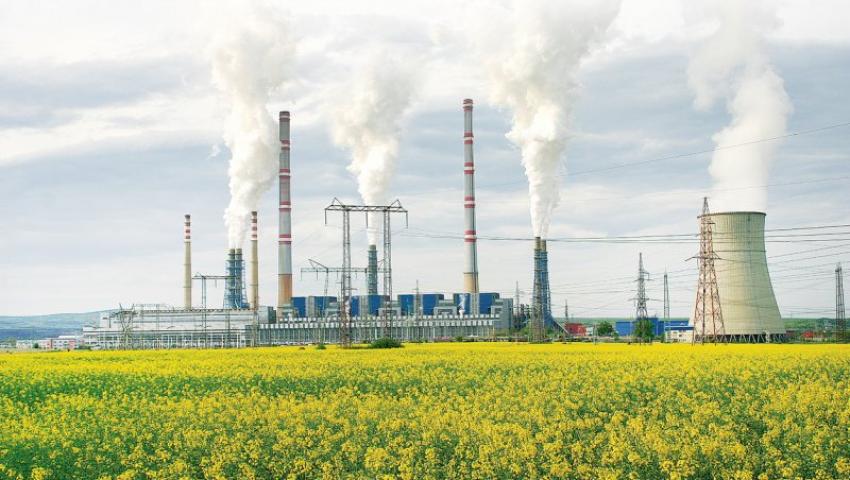The Deputy Prime Minister: The EC asks when we will close the TPPs. This is not a decision for a caretaker cabinet, but for the parliament
The National Assembly must draw up a clear plan for 10-20 years for the transformation of these regions, advises Atanas Pekanov

Although the Recovery and Sustainability Plan does not state when the coal-fired power plants in Bulgaria will be closed, we receive inquiries about this from the EC services. But it is not right for an official cabinet to solve such a hot topic in a few weeks and we will not do it. This was stated by the Deputy Prime Minister for Management of European Funds Atanas Pekanov in the column of the Council of Ministers "The government speaks! Openly".
He is adamant that this is something that is subject to a long debate, different scenarios, discussions, and his personal opinion is that the last word should be in parliament.
However, Pekanov believes that a lot of time has already been lost in this regard. "Unfortunately, we have not done enough on this topic over the years. This, for me, is also the fault of the political class, ie. we have not talked. The green deal, for example, is something that has been talked about extremely intensively at the European level for 2-3 years. But in Bulgaria this debate is not conducted enough to explain to people what is good, what are the risks, how to address them... ", said Pekanov.
He noted that the EC has created the so-called Fair Transition Fund, which has 1.2 billion euros for Bulgaria, which will go to these regions - the coal. "But we will only receive this money if, at some point in the future, this transition from coal to cleaner energy occurs. However, these debates have not been held and it is not right for us (the caretaker government) to come and decide in a few weeks ", the Deputy Prime Minister is categorical.
According to him, however, there is no time to lose and Bulgaria must start making these decisions. "Therefore, the Recovery Plan is based on the establishment of an energy transition commission, which should create 2-3 scenarios for what can be done in the coal regions and with coal-fired power plants in the next 10-20 years, to give these scenarios to parliament and at some point to decide what will happen there in the future. This is the approach we have adopted and I hope that we will convince the EC that this is also the most democratically correct approach. We cannot make this decision, but we know that it must be made, "Pekanov explained.
According to him, the real situation is that on a market basis it will be very difficult in the long run, given the cost of emissions, to maintain coal-fired power plants forever. Therefore, we need to take a more serious look at the next 1-2 decades, to look for and find solutions to the problem of coal-fired power plants and coal mining areas.
In this regard, Pekanov stressed that climate change is one of the major problems in our lives and our time. And this is one of the things we need to solve and work in this area. "In this sense, I share the vision of the EC, which created the Mechanism for Recovery and Sustainability. It is very interesting because it is both for recovery and for sustainability. For the recovery - short-term support of the economy, to keep it as much as possible from the shock of the pandemic, but also sustainability, ie. to make investments that are not only for short-term stimulation, but for the long-term sustainability of our economy and societies, "said the Deputy Prime Minister.
According to him, that is why Brussels has set criteria for 37% of the funds under the Mechanism for Reconstruction and Sustainability to go for a green transition. "I share this priority. That is why so many of the projects in the Recovery Plan must be in this area, "Pekanov said.
He noted that the caretaker government has received a lot of criticism for not including more money in the Plan for tourism, for culture ... But, according to Pekanov, the European Commission, with these funds, has set a clear goal that they are for the green transition and respectively at least that should be the investment in this area.
"But this is just one of the things that is happening. There are many other mechanisms that are evolving and they need to be evolved. As well as emissions trading and all the other steps we can take through economic and meaningful measures to reduce and somehow address this problem, "said the Deputy Prime Minister.
According to him, climate change is an absolute good example of long-term problems that we do not see before our eyes. Ie the market cannot solve them because people with their daily actions will not be able to take the necessary steps. Or at least they won't do it until it's too late. "Then we will want to do them, but the changes will be irreversible. That is why here we need precisely these regulatory mechanisms that are imposed. Whether it will be through emissions trading, through some price control, through tax policy - steps that are being taken, or through investments, as will happen through the Mechanism for recovery and resilience. This is the right approach, because otherwise we have exactly this effect - market failure, when we do not see the end result of our actions, it will happen at some point and we will not be able to reverse it. That is why we must intervene now and decisively ", Pekanov is categorical.
